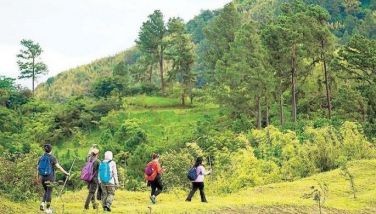Agri development plan needs review – Balisacan
MANILA, Philippines - The government needs to revisit its development strategy for the agriculture sector, which has been tagged as the biggest roadblock to national economic development, a top economic manager said.
Former Economic Planning Secretary Arsenio M. Balisacan said a review of the strategic development plans of the agriculture sector, which employs over 30 percent of the country’s population, is in order.
“There is an urgent need to rethink the development strategy for this sector, especially with the impact of El Niño and natural disasters that hound our country,” said Balisacan, who now chairs the Philippine Competition Commission (PCC).
The share of the agriculture sector to overall economic development declined from 20 percent in the 1970s to just 10 percent last year, from a growth rate of nearly five percent in 2014 to 0.2 percent last year.
From an employment figure of 12.04 million at the end of 2009, the agriculture sector employed only 11.48 million last year.
Balisacan said the agriculture sector must grow at an annual average of three to four percent in the next two decades. “At that rate, we would be able to reduce poverty.”
Dr. Leonardo A. Lanzona Jr., professor of economics and director of the Ateneo Center for Economic Research and Development, decried the lack of a comprehensive policy program for the sugar subsector, and the lack of concern for the agriculture sector in general.
“The national government has neglected the agriculture sector,” he said.
The Ateneo economist said among the weaknesses of the Philippine economy are the weakness in the agriculture sector, high poverty rates, low employment generation, and the export sector’s general decline.
Balisacan said farmers are already isolated by poor infrastructure, not just from markets outside the Philippines, but also from markets within the country.
“Solutions have a focus on the domestic needs of farmers,” he said.
He said the Philippines must invest substantially into generating technologies that are appropriate for the conditions of the agriculture sector.
“The conditions of our farmers are so varied, I keep saying what works in Ilocos could not be expected to work as effectively in Visayas and Mindanao. The conditions, such as climate, soil, pests, transport logistics and the like, are very different,” he added.
The World Bank urged agriculture-dependent nations to design laws and regulations to make agriculture as the bedrock for national development.
In its report titled, “Enabling the Business of Agriculture 2016,” the World Bank outlined key issues that must be addressed. These are: seed; fertilizer; machinery; finance; transport; markets; information and communication technology (ICT); land; water; and livestock.
- Latest
- Trending





























